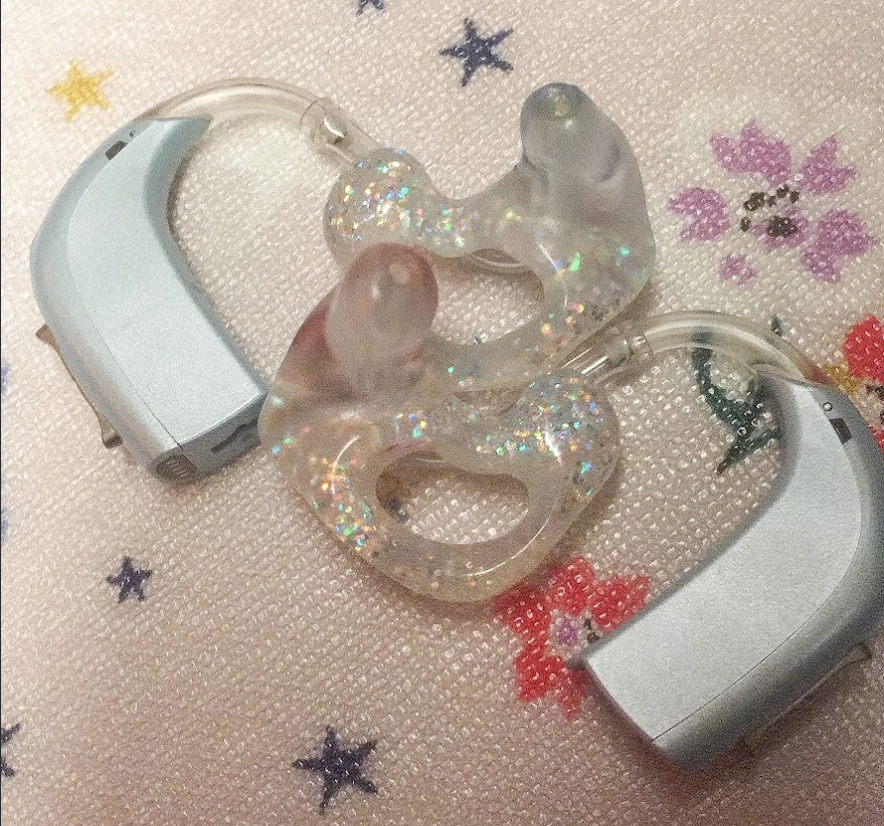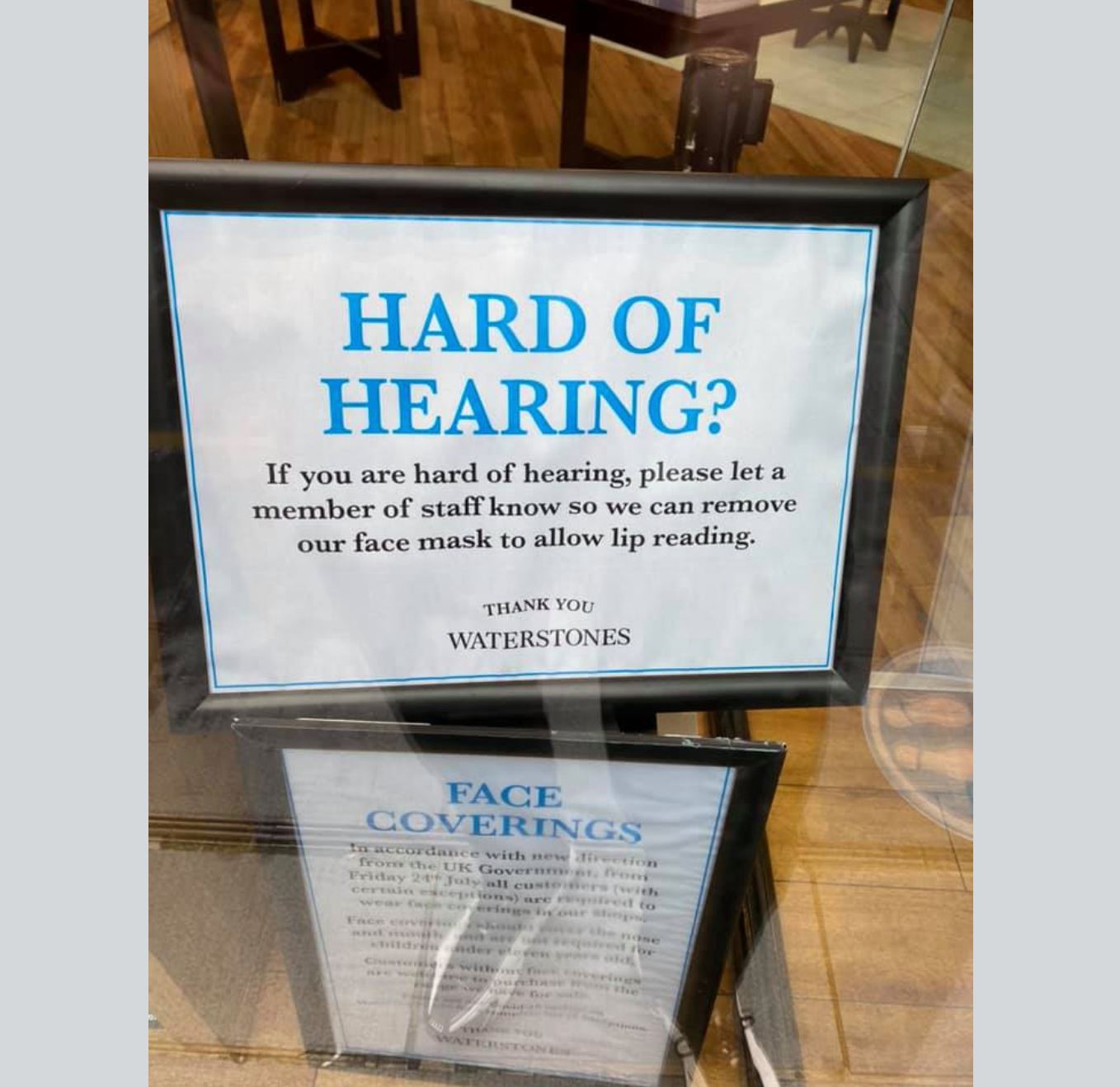Thoughts on Deaf Awareness Week from someone who's deaf

Despite being both a journalist and someone who's deaf/hard of hearing, I only found out today that it's Deaf Awareness Week (DAW). From my hearing boyfriend, no less.
Incidentally, he only found out because it was mentioned to him during a phone call to get a carers card, something he applied for so he can brandish it at A&E the next time we inevitably end up there and say 'Look, she's deaf and you're wearing face masks, please let me stay to be her hearing dog so she's not sat there for an hour and a half in agony after being called twice and not hearing those calls and then assumed to have left despite presenting with an unwalkable ankle, where's she going to go on that?' Or something.
What benefits are there for D/deaf[1] by recognising DAW? Am I just out of the loop with all D/deaf things?
Because here's the thing: I wouldn't call myself Deaf. I'm the only one in my family with a hearing loss, other than my relatives who have lost it from old age; I was born to a hearing mum and went to a mainstream school where I was the only deaf person; 99% of my friends are hearing, except for a few that I met on NDCS trips as a teenager; I know some basic sign language, but I communicate with people through talking.
And yet, it not being visibly a big part of my life, my hearing loss affects me every single day and moreso during the last 14 months of mask wearing. I was very lucky to have been at my mum's house from March to June of last year, so all my interactions were with her at home, or paying for shopping usually at the self-service tills, but the second the world opened up again I felt like I was in this scene from Never Let Me Go, like I'd never experienced very normal things I'd done hundreds of times before. Ordering a coffee, buying books, someone asking me for directions - all of this felt impossible because I could no longer rely on lipreading and facial expressions. I had to try and recall in my head, for example, the pattern of a coffee order: 'iced oat latte, medium, no I don't need any sugar thank you' and if there was any deviation from this I was immediately lost.

I'm one of 11 million people[2] in the UK living with a hearing loss - that's 1 in 6 adults. According to Hearing Link, a UK-wide charity for people with hearing loss, deaf people are more likely to have more mental health (up to 50%, compared to 25% for the general population) and be unemployed (65% of working age deaf people are in employment, compared to 79% of the general population). They also say 6.7 million people could benefit from hearing aids but only around 2 million people use them. That's less than a third!
As well as this, the Royal College of Speech & Language Therapists highlighted that the rise in the use of face masks due to the Covid-19 pandemic makes it harder for people with hearing loss to communicate, leading to the creation of face masks with a transparent panel to enable lip reading - better than a covered mouth, but still not perfect.
I think, after all of this, I've talked myself around to realising that DAW is as much for hearing people as it is D/deaf people. The more people learn about the difficulties of this (mostly) invisible disability, the more society can adapt to be better eqipped for those of us who can't hear very well, or at all.
The British Deaf Association has written a beginners’ guide for communicating with Deaf people. If you're someone who isn't D/deaf (very likely if you're one of my friends!), please consider:
- Being prepared to repeat yourself if someone doesn’t understand you first time
- Speaking in your usual way - don’t be tempted to speak slowly, loudly or exaggerate your mouth movements, because that just makes things harder for the person trying to understand you
- Making good eye contact; look directly at the person you're talking to, don’t turn away, and don’t cover your face or mouth
- Waiting until the person is looking at you before you attempt to communicate
- Learning some basic British Sign Language! This website has some great resources - learning basic things like the alphabet, some phrases and directions, and the time have all come in handy for me even outside of D/deaf conversations.
If Deaf Awareness Week helps even one person to be more aware of D/deaf people and their needs, that's a success - and as restrictions continue to lift the thing I'm looking forward to the most is the day when I don't have to rely on someone else to help me understand what people are saying behind their masks.
Deaf (with a capital D) refers to a group of deaf people who share a language and culture; deaf (with a lowercase d) is the audiological condition of not hearing or having impaired hearing. The difference is styled as D/deaf ↩︎
https://www.hearinglink.org/your-hearing/about-hearing/facts-about-deafness-hearing-loss/ ↩︎

